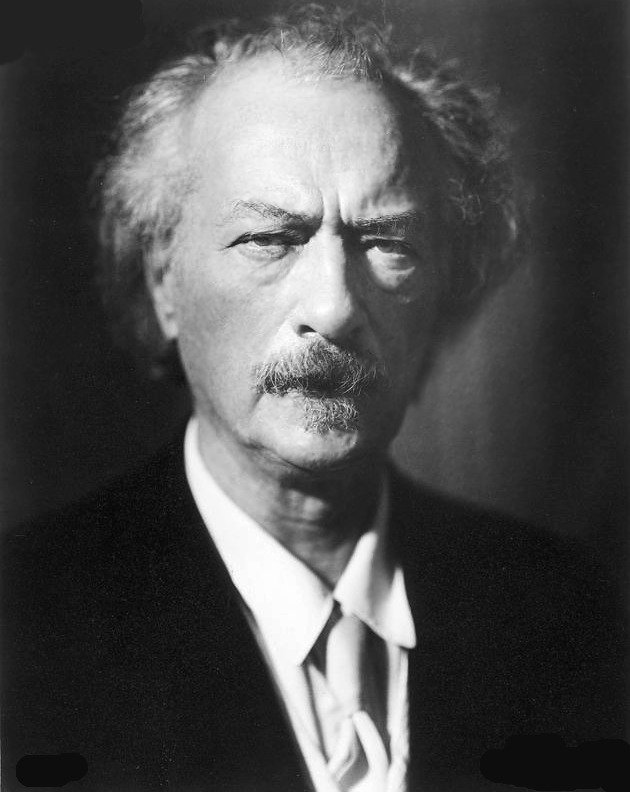
Link to the book.
In the philosophy of language and mind, Paderewski’s name became well known because Saul Kripke used this example to illustrate or argue for certain ideas about proper names and reference. In Chapter 7 of Talking About, I adapt Kripke’s example to my own argument. Doing so makes it easier to show, first, how reference failure can occur in virtue of identity confusion and, second, how confusion can thwart the aims of the speaker in utterance production. To some, I suspect, the example will seem tired from overuse. But I think the mechanistic perspective on explaining pragmatic and semantic competence is helped by showing how it interacts with very familiar discussions which are normally in a different key.
Finally, consider this variation on the original story. Peter just saw a concert performance by Paderewski1 the pianist with two of his friends. During recess, the three of them meet Paderewski (no subscript) and Peter believes they are meeting Paderewski2 the statesman. And, of course, Peter falsely believes that Paderewski1 ≠ Paderewski2. Peter says to the group, lifting his glass slightly as if he were openly celebrating Paderewski2, ‘Paderewski is a great pianist.’
My point here is, simply, that our theory should have the resources to explain what exactly has gone awry. Very roughly, the characteristic function of an act of reference is to provide evidence for a singular referential intention. But the formation of such an intention normally requires a little bit of help from the external environment, which is not forthcoming in this case. So, the intention itself is not fit to purpose and the underlying mechanism fails to perform its characteristic function. The human heart is supposed to pump blood, but may sometimes fail to do so, or at least to do so in the normal way, but only in catastrophic cases does this spell doom for other functions to which it contributes, like maintaining a healthy, living body.
Peter knows Paderewski the pianist and Paderewski the statesman. But he believes that they are two different people. According to my favored theory, this means that Peter literally believes the proposition that Paderewski1 is distinct from Paderewski2, where the subscripts are the theorist’s device to keep track of a cognitively real difference in Peter’s mind.
Similarly, we sometimes intend to utter one word but utter some other word, without this having any practical effect. From the theoretical perspective – the perspective of explaining everything we want to explain about referential competence – the conversation between Peter and his friend does not need the assumption that reference is successful. What we need is the notion of what the friend believes Peter to have referred to. Communication can run smoothly even if this belief is strictly speaking false. And it is false because Peter intended to refer to an object o such that o is not identical to Paderewski2. But that individual is metaphysically impossible since no one can fail to identical to themselves.
Now, here is a way to make the predictions of my theory appear outrageous and obviously false. I call the theory edenic intentionalism and it predicts that, if indeed Peter is thoroughly confused on the occasion of utterance, he fails to refer to Paderewski in uttering something like ‘Paderewski is famous.’ But how could this possibly be true? As far as the conversation goes, nothing out of the ordinary may happen. The hearer, let’s say, knows the truth about Paderewski and takes Peter to say something true about that very person. Well, my response is, roughly, that communication need not be perfect to succeed for all intents and purposes. It is part of our role as theorists to describe the ideal; in the sense that we make assumptions about the normal function of the mechanism in question. In highly abstract terms, this can be captured as the speaker’s plan or intention in speaking.
Ignacy Jan Paderewski was famous both as pianist and the Prime Minister of Poland. Thus, it is easy to imagine that someone is familiar with him in both roles but mistakenly thinks that there are two people involved, not one. It is easy because being both a famous pianist and a famous statesman is fairly unlikely.
Now, Peter would never say such a thing about Paderewski2 the statesman because he doesn’t believe he is a musician. He thinks this is obvious to all present, even Paderewski2. But still, Peter’s audience, including Paderewski, takes him to be intending to refer to the man standing right in front of him. And some theorists would like to conclude that this is the man Peter actually referred to. It is a perfectly accurate description of Peter’s mental state to say that he intended to refer to an object o, such that o = Paderewski1 ≠ Paderewski2, although this is certainly not how Peter would represent his intention to himself. But he surely intends not to refer to the Paderewski standing in front of him, by uttering ‘Paderewski,’ just like he intends not to refer to either of his two friends.

